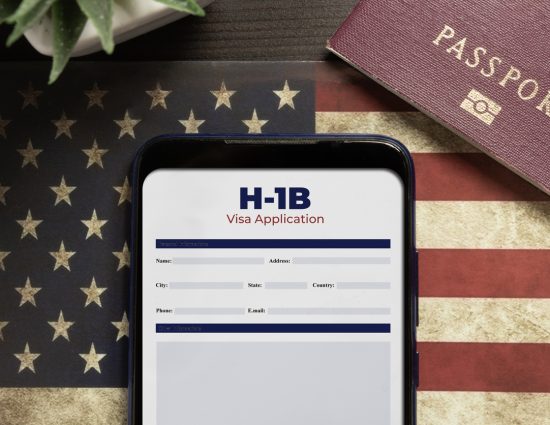Global Visa Digitalization and Its Impact on Immigration in Business

In today’s global economy, the interconnectedness of the world’s nations drives a significant transformation. Digital innovation and data-driven policies are reshaping how people move internationally, especially regarding visas and immigration. For HR managers responsible for global talent, this shift brings opportunities and challenges that impact their daily work and companies.
This exploration of visa digitalization delves into changes in the EU, Brunei, Singapore, and Taiwan, moving toward a paperless, secure way to manage mobile workforces. This evolution empowers HR professionals and sets a foundation for workforce mobility in the digital era.
The Introduction to Visa Digitalization
The growing adoption of digitalization work permits is revolutionizing how businesses handle global mobility. Traditional work permit processes often involve complex paperwork, long approval times, and regulatory uncertainties. However, digitalization streamlines these processes by enabling online applications, automated verification, and real-time tracking. This transformation reduces administrative burdens for HR managers, allowing them to efficiently manage workforce mobility while ensuring compliance with evolving immigration policies.
The global focus on digitizing the visa acquisition process stems from the desire to move away from out of date , paper-based systems that are prone to inefficiencies and sometimes security risks. The necessity for a more streamlined and secure approach is paramount as businesses increasingly depend on international talent to remain competitive and innovative.
Enter the digital visa – a virtual authorization that is stored, managed, and processed online. Digital visas are not just a convenience for travelers; they present a paradigm shift for HR managers responsible for coordinating the mobility of employees across the globe. This digital shift makes application and processing faster, more accurate, and in many cases, cost-efficient.
Visa Digitalization in the EU

The European Union is a gateway to a rich talent pool and a pivotal region in the global economy. Recognizing the need for modernization, the EU has been an enthusiastic adopter of visa digitalization, rolling out its ‘visa information system’ (VIS) across member states.
Implementation Status and Benefits
Implementation of the VIS is nearing completion, heralding a new era for visa management. The system unifies the application process and enhances consular control, allowing for easier information exchange between member states. The benefits are multifold, including accelerated processing times, reduced error rates, and enhanced security measures with biometric features.
For HR managers, this shift means less administrative burden and more time to focus on strategic workforce planning. The digital visa system in the EU increases transparency and improves access to real-time application status, facilitating smoother and faster international placements.
Visa Digitalization in Brunei, Singapore, and Taiwan
Within the Asia-Pacific region, countries such as Brunei, Singapore, and Taiwan are making significant strides in visa digitalization. While all three are distinctly different, their shared commitment to digital transformation in immigration processes is notable.
Comparison of Digitalization Efforts
Brunei’s e-Visa system, Singapore’s e-Service for visa applications, and Taiwan’s e-Visa application process highlight the diverse approaches to digital adoption. Brunei and Singapore have both focused on creating user-friendly, customer-centric platforms that offer quick turnaround visa application services. Taiwan, on the other hand, has elevated its digital system through a visa-waiver program for certain countries, simplifying the process even further.
HR Manager Response
These initiatives shorten lead times for international assignments, offering HR managers more planning predictability. Remote visa application initiation and tracking empower HR managers to handle relocations smoothly, even in unpredictable business environments.
Impact on Immigration Processes
Streamlining the immigration process through digital visas is more than just a convenience factor—it has far-reaching implications for security and efficiency.
Streamlining Visa Applications and Approvals
Transitioning to digital visas streamlines application processes, benefiting applicants and authorities. Digital systems authenticate biometric data, reducing fraud and identity theft risks. They also facilitate real-time data sharing, speeding up approval times from weeks to days.
Enhancing Security Measures and Data Protection
Digital visas boost border security by giving immigration officials access to traveler profiles before arrival. This pre-screening can block entry upon detecting discrepancies or red flags. Digital storage and management of visa data also protect against loss or theft, crucial for safeguarding personal information.
Benefits for HR Managers
Amidst the wide-ranging benefits of visa digitalization, HR professionals emerge as one of the biggest beneficiaries of this transformation.
A digital visa management system enhances HR efficiency by centralizing visa applications, renewals, and compliance tracking. These systems provide real-time updates, automate documentation workflows, and reduce the risk of missed deadlines or regulatory non-compliance. By integrating digital visa solutions, companies can streamline their international hiring processes, improve employee relocation experiences, and minimize delays caused by traditional visa bottlenecks.
Time and Cost Savings
The reduction in processing times directly translates to quicker mobilization of talent, saving both time and costs associated with lengthy visa waiting periods. Digital platforms also eliminate the need for courier services and physical document handling, further trimming expenses related to visa processing.
Improved Management of Visa Applications
HR managers gain unprecedented visibility into the visa application process. Digital systems provide updates in real-time, offer better tracking capabilities, and ensure that expirations and renewals are handled efficiently, allowing HR to coordinate mobility plans with greater precision.
Compliance and Tracking Enhancements
With digital visas, compliance becomes more manageable. The shift to automated systems means that rules and requirements are consistently applied, reducing the risk of inadvertent non-compliance. HR can also track visa expiry dates and manage the reapplication process with fewer administrative hurdles.
Conclusion: Navigating the Digital Visa Landscape
The shift to digital visas is a significant change impacting international migration management. HR managers must stay updated to streamline global talent processes. It’s crucial for companies to partner with mobility experts like CapRelo for smooth international relocations. Future-proof HR strategies by connecting with our global mobility specialists and explore intelligent global mobility solutions for the future.



